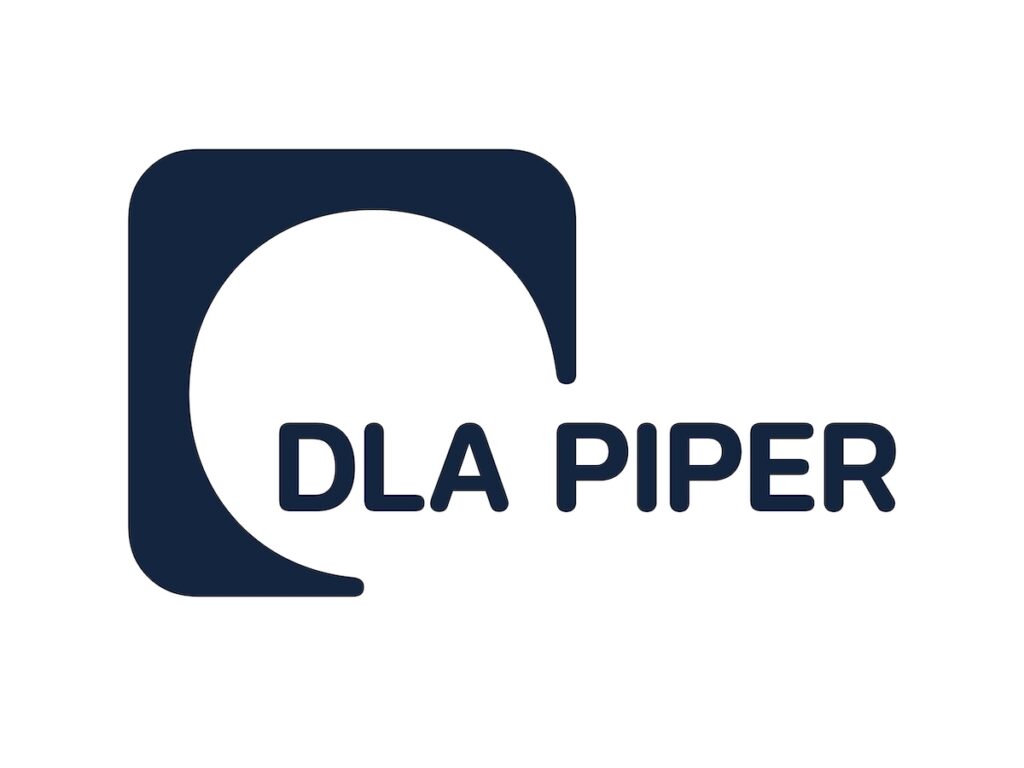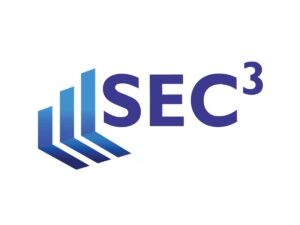February 2025: Latest News and Trends in Blockchain and Digital Assets | JD Supra

This periodic bulletin is designed to help companies identify important legal developments governing the use and acceptance of blockchain technology, smart contracts, and digital assets.
While the use cases for blockchain technology are vast, this bulletin focuses on uses of blockchain and smart contracts in the financial services sector. With respect to digital assets, we have organized our approach to this topic by discussing them in terms of traditional asset type or function (although the types and functions may overlap) – that is, digital assets as:
- Securities
- Virtual currencies
- Commodities
- Deposits, accounts, intangibles
- Negotiable instruments
- Electronic chattel paper
- Digitized assets
In addition to reporting on the law and regulation governing blockchain, smart contracts, and digital assets, this bulletin will discuss the legal developments supporting the infrastructure and ecosystems that enable the use and acceptance of these new technologies.
INSIGHTS
Meme coins alleged to be securities in two new class actions
By Michael Fluhr and Liz Caires
On January 16 and January 30, two related class actions were filed in the US District Court for the Southern District of New York against Baton Corporation LTD (Pump.Fun) and its founders. The complaints allege that Pump.Fun promoted and sold unregistered securities in the form of meme coins created and sold on its platform. Read more.
STATUTORY AND AGENCY DEVELOPMENTS
FEDERAL DEVELOPMENTS
White House
President Trump issues Executive Order on digital fintech. On January 23, the White House announced that President Donald Trump signed an Executive Order (EO) titled, “Strengthening American Leadership in Digital Financial Technology.” The EO directed digital asset regulators to provide “regulatory clarity” and “well-defined jurisdictional regulatory boundaries” in accordance with President Trump’s policies to support the growth and use of digital assets, blockchain technology, and related innovations while protecting economic liberty. The EO discussed the risk of Central Bank Digital Currencies (CBDCs) and prohibited the establishment, issuance, circulation, and use of a CBDC within the jurisdiction of the US. The EO also directed the revocation of the Biden Administration’s EOs and the US Department of the Treasury’s Framework for International Engagement on Digital Assets. Finally, the EO established President Trump’s Working Group on Digital Asset Markets. The Working Group is comprised of various governmental agencies, including the Commodity Futures Trading Commission (CFTC), the US Securities and Exchange Commission (SEC), and the Federal Reserve, as well as the heads of agencies in the Executive Branch. The EO charges the Working Group to identify all regulations, guidance documents, orders, or other items that affect the digital asset sector. The Working Group is also required to submit to its Chair, David Sacks, recommendations on whether each identified regulation, guidance document, order, or other item should be rescinded or modified; or, for items other than regulations, adopted in a regulation. Within 180 days of the date of the EO, the Working Group must submit its report to President Trump. The report should:
- Propose a federal regulatory framework governing the issuance and operation of digital assets, including stablecoins, in the US, considering provisions for market structure, oversight, consumer protection, and risk management; and
- Evaluate the potential creation and maintenance of a national digital asset stockpile and propose criteria for establishing such a stockpile.
Crypto czar and Congress members outline cryptocurrency regulatory strategy. On February 4, White House Special Advisor for AI and Crypto David Sacks held a press conference joined by Senate Banking Committee Chairman Tim Scott (R-SC), Senate Agriculture Committee Chairman John Boozman (R-AR), House Agriculture Committee Chairman Glenn Thompson (R-PA), and House Financial Services Committee Chairman French Hill (R-AR). They outlined the White House’s short-term approach to cryptocurrency regulation supporting the objectives of President Trump’s “Strengthening American Leadership in Digital Financial Technology” EO. Sacks emphasized the need for regulatory clarity instead of regulation through “arbitrary prosecution and persecution,” and President Trump’s directive to examine a bitcoin reserve. Congress members introduced efforts to better educate other members of Congress on crypto assets and networks, as well as Senator Bill Hagerty’s new stablecoin bill, and their aims to create a comprehensive federal regulatory framework for digital assets to foster innovation and protect consumers.
President Trump signs EO on deregulation. On January 31, the White House announced that President Trump signed an EO titled, “Unleashing Prosperity Through Deregulation.” The EO requires all governmental agencies – when promulgating a new rule, regulation or guidance – to “identify at least 10 existing rules, regulations, or guidance documents to be repealed.” The Director of the Office of Management and Budget is charged to ensure standardized measurement and estimation of regulatory costs to meet the EO’s requirement that, for fiscal year 2025, the total incremental cost of all new regulations – including repealed regulations – be significantly less than zero. The stated goal of the EO is to halt the regulatory “blitz” of the Biden Administration, which “imposed a historic $1.7 trillion in costs,” and to reinvigorate small business development, consumer choice, and innovation.
FDIC
FDIC releases documents related to supervision of crypto-related activities. On February 5, the Federal Deposit Insurance Corporation (FDIC) announced the release of 175 documents related to its supervision of banks that engaged in, or sought to engage in, crypto-related activities. FDIC Acting Chairman Travis Hill noted that the decision “reflects a commitment to enhance transparency,” unlike the prior FDIC approach which “has contributed to a general perception that the agency was closed if institutions are interested in anything related to blockchain or distributed ledger technology.” Chairman Hill asserted, “[W]e are actively reevaluating our supervisory approach to crypto-related activities. This includes replacing Financial Institution Letter FIL 16-2022 and providing a pathway for institutions to engage in crypto- and blockchain-related activities while still adhering to safety and soundness principles.”
This release of documents follows Coinbase’s February 4 announcement that it sent a letter to the Office of the Comptroller of the Currency (OCC), Federal Reserve, and FDIC calling for updated guidance on crypto custody and execution services (C&E), as well as action to eliminate rules that wrongfully restrict access to banking services for C&E providers.
SEC
Chairman Uyeda announces Crypto Task Force. On January 21, Acting SEC Chairman Mark Uyeda announced that fellow Commissioner Hester Peirce would lead a new crypto task force “dedicated to developing a comprehensive and clear regulatory framework for crypto assets.” According to Chairman Uyeda, the task force will work on developing regulations within the SEC’s existing statutory framework and also advise Congress on legislative changes. Commissioner Peirce offered additional context in a published statement on February 4. She emphasized the need for a more structured and “legally defensible” approach to crypto regulation and promised to work across the entire SEC and collaborate with other regulators to disentangle ongoing litigation and regulatory ambiguities. Initiatives would include reexamining the security status of various crypto assets, providing temporary relief for coin and token offerings, and modifying existing paths to registration, such as Regulation A and crowdfunding. Additionally, the task force will address the regulatory status of crypto-lending and staking programs and consider new types of crypto exchange-traded products. Finally, Commissioner Peirce invited public engagement through written email submissions and in-person or virtual meetings.
SEC repeals controversial accounting guidance. On January 24, the SEC rescinded Staff Accounting Bulletin 121 (SAB 121), an agency guidance document that many in the banking industry viewed as an obstacle to providing custodial services for cryptocurrency. SAB 121 effectively required banks to treat any cryptocurrency held on behalf of customers as a liability on their balance sheets. As we covered in a previous alert, Congress passed a congressional resolution to repeal SAB 121 in May 2024, but was unable to overcome a presidential veto. In published statement, Commissioner Hester Peirce called the repeal of SAB 121 the first “milestone” for the Trump Administration’s Crypto Task Force.
SEC and CFTC Commissioners give insight into the Trump Administration. SEC Commissioner Hester Peirce and CFTC Commissioner Summer Mersinger spoke on February 11 at the webinar “Cryptocurrency After the Election” for the Federalist Society. Other panelists included House Representative Dusty Johnson (R-SD) and Senator Cynthia Lummis (R-WY). The panel discussed their expectations of how US financial regulators and Congress will approach cryptocurrency and other digital assets under the new administration.
SEC’s Crypto Task Force publishes discussion topics with crypto investment firm A16z. On February 5, the SEC’s newly formed Crypto Task Force met with representatives from crypto investment firm AH Capital Management, LLC (A16z) to discuss issues related to regulation of crypto assets. The SEC later published materials provided during the meeting. The meeting is particularly notable because, according to public reporting, President Trump has chosen A16z’s Head of Policy Brian Quintenz to lead the CFTC. The published materials suggest the meeting covered several key areas, including the need for a clear token taxonomy and guidance on decentralization, which is crucial for the functioning of blockchain systems without unilateral control. A16z emphasized the importance of providing interpretive guidance on “airdrops” and incentive-based rewards to prevent these distributions from being classified as securities offerings. The firm also advocated for modifying crowdfunding rules to better suit crypto startups, suggesting an increase in the maximum amount that can be raised and allowing broader investor participation. Additionally, A16z proposed enabling broker-dealers to operate in both crypto assets and securities, which A16z argued would enhance market functionality and investor protection.
CFTC
CFTC enforcement to refocus on fraud and stop regulation by enforcement. On February 4, CFTC Acting Chair Caroline D. Pham announced a reorganization of the Division of Enforcement’s task forces to combat fraud and help victims while ending the practice of regulation by enforcement. Previous task forces will be simplified into two new task forces: the Complex Fraud Task Force, led by Deputy Director Paul Hayeck, and the Retail Fraud and General Enforcement Task Force, led by Deputy Director Charles Marvine. According to the announcement, the new structure will better leverage staff expertise and more efficiently utilize CFTC resources, while providing enhanced governance and oversight.
CFTC to conduct crypto CEO forum to launch digital asset markets pilot. The CFTC on February 7 announced that it will hold a CEO forum of industry-leading firms to discuss the launch of the CFTC’s digital asset markets pilot program for tokenized noncash collateral, such as stablecoins. Participants will include Circle, Coinbase, Crypto.com, MoonPay, and Ripple. Further information on the CEO forum will be released once details are finalized.
CFTC launches initiative to combat romance scams. On February 10, the CFTC announced a renewed cross-agency initiative called Dating or Defrauding? to combat “relationship investment scams” – commonly known as romance scams or pig butchering – which involve gaining a victim’s trust through dating apps, social media, and text messaging before soliciting their investment in a fraudulent scheme, often involving cryptocurrency.
CFPB
CFPB closed for work. On February 10, the new Consumer Finance Protection Bureau (CFPB) Acting Director, Russel Vought, reportedly notified CFPB staff they cannot “perform any work tasks” and “should not come into the office.” This notice came after Director Vought directed staff to cease any pending investigations and announced on X (formerly Twitter) that he had notified the Federal Reserve that the CFPB “will not be taking its next draw of unappropriated funding because it is not ‘reasonably necessary’ to carry out its duties.” The CFPB is permitted to use its “current balance of $711.6 million” to continue to pay salaries and operating expenses.
STATE DEVELOPMENTS
Digital assets
Telcoin approved as Nebraska’s first digital asset bank. On February 4, Telcoin Bank announced that it had been granted conditional approval by the Nebraska Department of Banking and Finance to open the state’s first Digital Asset Depository Institution under the Nebraska Financial Innovation Act. Telcoin Founder and CEO Paul Neuner asserted that while Wyoming and the OCC did issue three charters previously, none of them have been able to gain access to the Fed payment system. “The Nebraska charter creates an actual bank charter, and the first that is explicitly authorized to connect consumers to DeFi,” he said.
ENFORCEMENT ACTIONS AND LITIGATION
FEDERAL
SEC
SEC charges blockchain engineer with “rug pull” fraud. On January 16, the SEC announced it filed and settled charges against Eric Zhu, a New York blockchain engineer, for allegedly perpetrating a fraudulent scheme to defraud investors in the “Game Coin” token (GME). The SEC alleged that GME was offered and sold to the public by Game Coin, LLC and its founders through a crypto asset trading platform that facilitates the creation and operation of liquidity pools for trading crypto assets. According to the SEC’s complaint, a person who deposits a crypto asset token pair (ie, liquidity) into a liquidity pool receives liquidity provider tokens (LP tokens). The SEC alleged that, absent safeguards, the holders of LP tokens can, without warning, withdraw liquidity from the pool, sell significant amounts of crypto assets into the pool, and cause losses to investors (ie, a rug pull). The SEC alleges that Game Coin and its founders represented to investors in
Source link
#Blockchain #Digital #Assets #News #Trends #February #Supra






